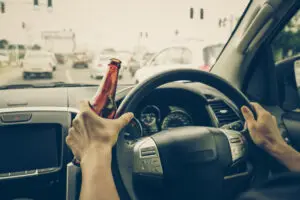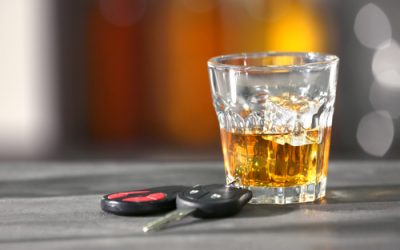
Maybe you were drifting into another lane or driving at inconsistent speeds. Once the bright lights flash in your rearview mirror, the countdown to protecting yourself begins. After being questioned about your erratic driving and performing roadside sobriety tests, you’re arrested for DUI. Now what? Knowing the process and basic legal strategy can largely impact your freedom.
This guide provides clarity on the DUI detention protocols, chemical testing processes, booking and charging procedures, and immediate actions to take if arrested in California. We outline officers’ investigatory powers, defendants’ legal rights and refusal options, potential penalties upon conviction, and the invaluable role a DUI lawyer in Los Angeles plays during this complex process.
Stay informed on the DUI arrest process from the initial stop through arraignment. Keep our advice handy before celebrating, and immediately call our attorneys if you find those dreaded flashing lights behind you. Knowledge and prompt legal help provide the best protection.
When Can Police Stop Drivers for DUI in California?
Officers can legally stop vehicles at any time if they have reasonable suspicion of DUI, such as weaving, swerving, or other visible signs of impairment. Checkpoints are also permitted in California, allowing officers to screen all passing drivers.
However, profiling based solely on the type of vehicle is unlawful. Experienced DUI lawyers know how to challenge improper profiling stops and suppression of resulting evidence.
What Are Field Sobriety Tests in California?
Standard field tests are part of California’s DUI process before an arrest is made. Your capability is checked at the roadside, including walk-and-turn assessments, one-leg stands, finger-to-nose touches, and monitoring eye movements for intoxication clues.
Officers observe balance, coordination, gaze nystagmus, and the ability to follow instructions without confusion or mistakes, which can indicate impairment without chemical tests.
Can I Refuse a Field Sobriety Test in California?
Yes, roadside field tests are technically voluntary, and no penalties exist for polite refusal in itself. However, refusal will lead officers to pursue formal breath or blood tests immediately.
Cooperation demonstrates confidence without impairment but avoids damaging failures. Voice any health conditions or medication impacting performance. Lawyers can often exclude faulty or coerced tests.
What Happens If I Fail a Field Sobriety Test in California?
Failing field roadside tests provides officers with probable cause for immediate arrest and chemical testing for blood alcohol concentration (BAC). However, field tests have 30% false positive rates when administered improperly.
When questioned about driving under the influence, never admit impairment. Be aware of all instructions. Once arrested, understand that it is legal to invoke your rights politely and say nothing further without an attorney.
What Is the Breath or Blood Test Process After a DUI Stop?
After a DUI arrest, California officers administer breathalyzer or blood tests, obtained via warrants if refused. Machines are calibrated and require following strict protocols for valid results. Blood draws undergo laboratory analysis documenting blood alcohol levels. All machines and procedures are subject to scrutiny by skilled DUI defense lawyers.
Can I Refuse a Breathalyzer or Blood Test in California?
You have the legal right to refuse chemical BAC testing, but automatic 1-year license suspension, probation, fines, and DMV fees apply for test refusal. With no results, prosecutors rely on field sobriety tests, so the refusal impact is mixed.
Never disobey officers, but merely invoke your rights professionally. BAC over .08% creates a presumption of intoxication (California Vehicle Code 23612).
What Happens After a DUI Arrest in California?
After arrest, vehicles are impounded for 30 days unless released to a licensed driver. The defendant is transported for processing, fingerprinted, photographed, and formally booked before release or detention pending arraignment within 48 hours. Hiring an attorney immediately can facilitate the release and obtain recordings that may be destroyed otherwise.
How Quickly Must a DUI Arrestee Be Arraigned in California?
When it comes to being arrested for a DUI, California law requires DUI defendants to be arraigned within 48 hours of arrest, excluding Sundays and holidays (CA Penal Code 825). Delays beyond 48 hours may violate the law and lead to exclusionary remedies at trial. Preparing an aggressive defense requires quickly securing limited videos, so call an attorney before arraignment.
What Types of Punishments Do DUIs Carry in California?
In California, the DUI arrest process is just the beginning. First DUI convictions face fines up to $1000, license suspension of six months, up to six months jail time, DMV fees, DUI classes, and other administrative punishments. Subsequent DUIs ratchet up penalties drastically, with three-year suspensions, 10 days to one year of jail, $1825 fines, and more.
What Should I Do If Arrested for DUI in California?
California’s DUI process can be difficult to navigate with no legal aid. Understand your rights and follow these essential steps to reclaim leverage in a DUI case:
- Start by politely invoking your right to remain silent and requesting an attorney immediately.
- Cooperate fully with processes like fingerprinting and paperwork, but never admit guilt or make statements without counsel present.
- Preserve evidence like dash cams before destruction.
- Calling an experienced DUI attorney promptly is critical for mounting a skilled defense.
How Can a DUI Attorney Assist if I’m Arrested in California?
Skilled DUI lawyers know how to challenge improper stops, field test issues, insufficient Miranda rights notifications, BAC test errors, and other procedural flaws that could invalidate the DUI. DUI lawyers negotiate charge reductions when possible but also vigorously contest allegations at trial when warranted.
The expertise of a knowledgeable DUI defense attorney managing your case is invaluable. If you are in need of legal advice, no matter what stage your DUI case is in, contact a top-rated California DUI attorney today.






